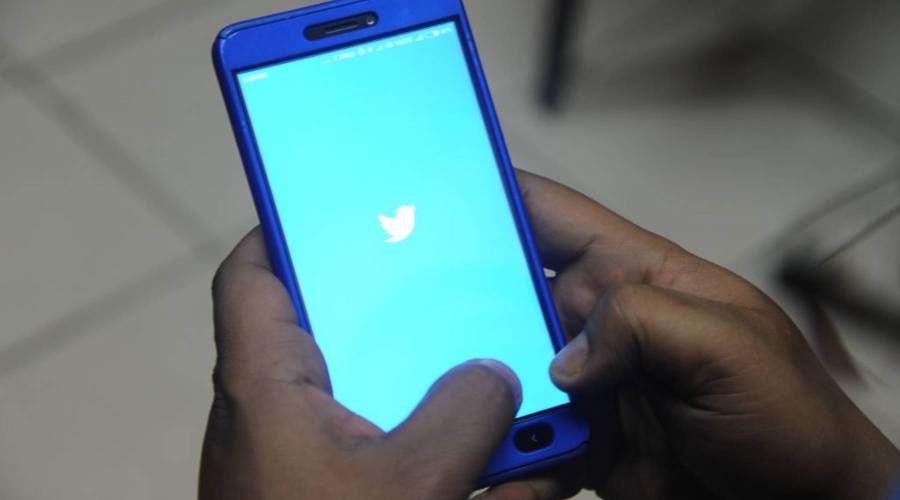From BlackPlanet to Black Twitter, the evolution of Black voices on social media

Black users have created trends and agitated for change on social media for years. Think April Reign and #OscarsSoWhite. Even the Black Lives Matter movement itself, which was born in a Facebook post by an Oakland, California, activist and took on life on Twitter.
Now, as protests over police brutality and systemic racism continue, social media is a tool for organizing, amplifying and arguing. Yes, it can often be a racist dumpster fire. But, experts say that a big, messy public square might actually be the best place to create political change.
I spoke with Omar Wasow, who is one of the founders of the social media site BlackPlanet, an early place for Black expression online. He’s now a professor at Princeton studying race and protest. The following is an edited transcript of our conversation.

Omar Wasow: What we’ve seen since the rise of sites like Facebook and Twitter is the emergence of other sites of Black expression. In particular, Black Twitter, I think, has become a real engine of articulating Black concerns and a forum where there’s a live debate going on around the clock. Something like Black Lives Matter, as an example of an idea emerging on Twitter championed by activists and organizers to become a national and international movement. I think Twitter is where most of that highly political conversation and action is happening.
Molly Wood: Where isn’t it happening? We’ve heard for years that Facebook often takes down posts by Black users talking about racism, because the algorithm flags it as hate speech.
Wasow: I’m not aware of Facebook having any particular anti-Black algorithms, but I do find the algorithms that emphasize discussion among your friend-of-a-friend network are going to have significant racial implications. White people are mostly going to be talking to white people, Black people are mostly going to be talking to their friends. It makes it harder to have a community-wide conversation where white people can hear what Black people are saying, where Black people can converge behind a hashtag who might not know each other but have common interests. Facebook is really much more a set of private conversations, and those private conversations don’t lend themselves to the collective action that can turn into protests and have real political consequences.
Wood: You’ve said that you want to see a more fragmented, multipolar internet. Tell me about that idea and whether the protests, and like you said, this engine of collective action, has changed that thinking at all.
Wasow: Part of what was really exciting in the early days of social media was this thousand-flowers-blooming experience. There was PlanetOut for the LGBTQ community, [for example]. Facebook has homogenized the internet. You don’t have to know anything about HTML for formatting a web page. One of the challenges is that you want to be able to have tools that allow you to moderate and have a broad conversation, but sometimes you want to have a conversation within a group conversation. And on something like PlanetOut, you might have had a different kind of conversation than it is on Facebook. We may move towards something that’s less consolidated, but the trend seems to be increasingly there are one or two dominant players in every aspect of the web, and I think something is lost in that.

Related links: More insight from Molly Wood
There is a great piece on The Undefeated from a couple of weeks back that is a deep dive into the “rich history behind Black Twitter.” It talks about the blessing and the curse that is social media, and yes, it includes BlackPlanet. There’s also a Vice piece on Black Twitter calling out companies for tweeting about their support for Black Lives Matter, but perhaps having a nice, long history of not-so-supportive behavior.
TechCrunch reported that Twitter had a record number of downloads and installations last week, which isn’t surprising given how fast it’s breaking news. Although interestingly, more of those installations happened outside the U.S. than inside, possibly because of the combination of people following protests in the U.S. and organizing their own in other countries. And because of people wanting to track the COVID-19 pandemic, which is still happening.
Finally, a group of 140 scientists who received some funding from the Chan Zuckerberg Initiative — which is the charitable organization set up by Mark Zuckerberg and his wife Priscilla Chan — looked that gift horse in the mouth on Saturday and sent a letter objecting to Facebook’s stance on misinformation and divisive content. Specifically, the post by President Trump that was flagged by Twitter. The scientists say it clearly violates Facebook’s policies against inciting violence. In a public statement, the Initiative said it was completely separate from Facebook and has a different mission. Although in an internal memo published by The Washington Post, Chan acknowledged that CZI does share the same leader as Facebook and wouldn’t exist without its success. And on Friday, Zuckerberg posted on Facebook saying basically, we’ll think about it. All. Again.
The future of this podcast starts with you.
Every day, the “Marketplace Tech” team demystifies the digital economy with stories that explore more than just Big Tech. We’re committed to covering topics that matter to you and the world around us, diving deep into how technology intersects with climate change, inequity, and disinformation.
As part of a nonprofit newsroom, we’re counting on listeners like you to keep this public service paywall-free and available to all.
Support “Marketplace Tech” in any amount today and become a partner in our mission.


















